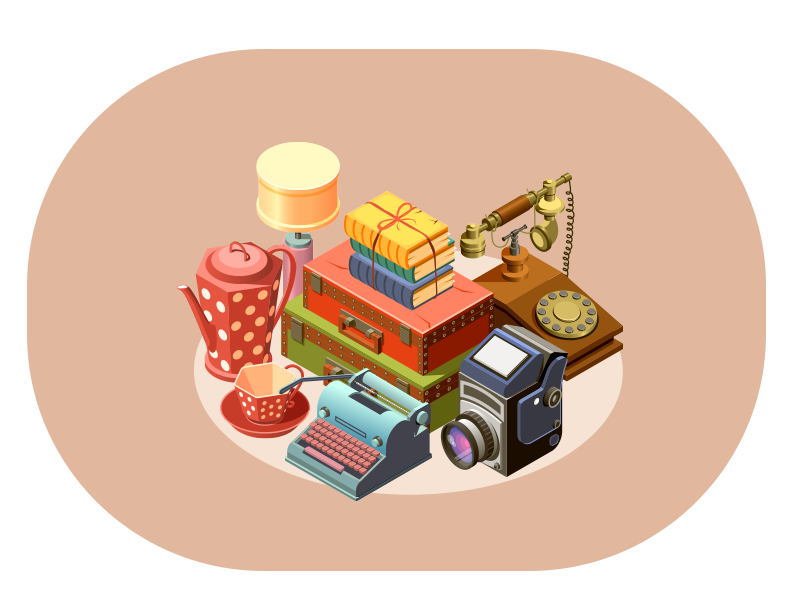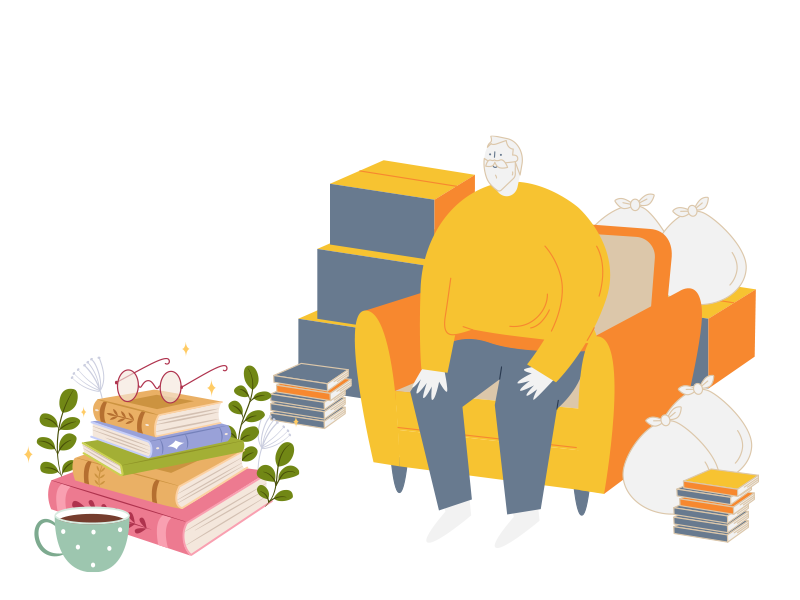How to Help a Hoarder Parent

Imagine newly hatched baby birds in the nest. The parents worked hard to prepare a safe space, then spent all their waking hours protecting, feeding, cleaning, and training their precious young. But how would it have been if the nestlings lived with a hoarder parent? This article is for you, whether you’re fourteen or forty, to explain how to deal with a hoarder parent.
What Is Hoarding Disorder?
Hoarding disorder is not moral weakness, laziness, or dirtiness. It’s a mental health problem.
Genetics and age often make a pre-existing condition worse. Triggered by painful situations such as poverty, loss, and abandonment, people struggling with hoarding disorder frequently lack problem-solving skills. They feel helplessly overwhelmed so making decisions and organizing tasks is difficult. They already feel defeated.
Uncontrollable shopping and collecting are compounded by the compulsion to guard their belongings. What seems like junk to you provides a hoarder with a sense of security for an uncertain future. Being surrounded by old objects keeps memories of happier times alive. Something as basic as getting rid of trash represents change and removal, triggering the chaos of the hoarder’s early life. It’s no surprise that living in constant dread causes a person with a hoarding disorder to withdraw from others. The growing clutter results in growing shame.
And where does this leave you?
Talking About It

Are You a Private Person?
You might be a person who values your privacy, or you might be shy, so you might avoid talking about problems. However, learning to ask questions shows you that you’re not alone. Sharing problems leads to sharing answers.
Did you know that humans are a lot like parakeets? Like horses, cattle, dogs, and goldfish, too. We are all animals who do best in groups. We work together and support each other for the good of the group. It’s normal and healthy to ask for help. Some problems may seem like “nobody else’s business,” but the truth is that you’ll be amazed how many people have the same problems you do.
Learn More from Others
Explore books, magazines, websites, and hoarding forums on social media. You can also reach out to adults who specialize in helping solve family problems: teachers, counselors, and religious leaders who make you feel comfortable.
How to Start a Difficult Conversation
Think about awkward times in your own life when an issue comes up. Remember past discussions when your parents seemed unable to put themselves in your shoes — now you have an idea of how they felt. Communication works best when:
- You both are relaxed and calm
- You both have time
- You both have privacy in a quiet place without interruptions
- You repeat your wish for your parent’s safety and happiness
- You listen to your parent’s feelings without judging or attacking
- You offer to help find solutions as a partner learning together
- You focus on things you can agree on and avoid arguing
Getting Professional Help

The more you talk together, the more normal it gets. Moments of anger can flare as sensitive issues are explored, so it’s okay for you to back off and give each other some space. Living with a hoarder parent, you understand their distress, frustration, and loneliness.
At some point, you can bring up the idea of going to somebody who’s an expert. After all, going to a mechanic, veterinarian, or dentist is the smart thing to do when you need help. If your parent has a family doctor or trusted healthcare provider, a call to their office is a good place to start.
What’s more, health professionals and hoarding cleanup companies must obey privacy laws to guard the confidentiality of their clients. They respect each patient’s needs, working on problem-solving skills to find healthy ways to manage anxiety and hoarding behaviors. That also means creating a personal action plan to declutter the home and make it safe.
What Not to Do
The Golden Rule is part of all major world religions: Do unto others as you would have them do unto you. You see that making comments like the following don’t help people who struggle with hoarding:
- “What’s wrong with you?”
- “It’s junk!”
- “You don’t need all this stuff!”
- “Why can’t you just throw it out?”
- “Let me help you get rid of it.”
- “How can you live like this?”
- “I don’t see how you stand it.”
- “This is repulsive!”
- “This disgusts me!”
- “You just need to pick yourself up by the bootstraps and change.”
You get the idea.
Maybe you’ve had visions of a SWAT team mission to invade and clear out the house. But consider fear: if someone were paralyzed with fear, would shooting up their hiding place with automatic weapons help them?
Medical conditions are not cured by angry demands and violations of personal space. In other words, how to help a hoarder parent is to understand that hoarding behavior is a mental health condition.
Creating a Safe Home

Have you been trained in CPR and first aid? The first action in life-saving is to scan the scene. Emergency response is dangerous unless the scene is secure from hazards. In learning how to help a hoarder parent, focus first on safety and health.
A home needs clear paths to doors and bathrooms. Slips, trips, and falls are leading causes of injury, especially for older people. Removing loose rugs, clothing piles, cords, and other objects on the floor may save your parent’s lives. Fire hazards include damaged cords as well as electrical outlets surrounded by flammable materials. Since pests and mold can trigger allergic reactions, asthma, and permanent breathing problems, allowing fresh air into the home is vital. Urge your parent to get a medical alert system in case of an emergency.
Who Should Do What
Whether you’re living with a hoarder parent or on your own, you can’t live another person’s life for him or her. You can see a problem that’s getting worse. What you can do is learn about it and then work on finding people who can help. Never blame yourself for being unable to fix other people’s lives.
Hoarding disorder is a lifelong condition that has to be managed by the person who suffers from it. It’s beyond your ability to cure, so you have no cause to feel guilty for not doing enough. You’re helping by offering options and emotional support. Listen, be prepared for a long journey, and celebrate small successes together.
You can also help by helping yourself.
Taking Care of Yourself
Self-care isn’t selfish. Flight attendants instruct passengers before the plane takes off to put on their own oxygen masks first before helping other passengers. It’s exhausting to be a kid having to parent a parent, and everyone involved suffers in the chaos. You grow up wondering why your parents don’t see how obsessive behaviors affect you. You feel hurt and confused because your needs are neglected in favor of the obsession with “stuff.”
Your parent’s hoarding disorder is neither your fault nor your responsibility. Your job is to strengthen yourself by seeking a mental health expert on PTSD — post-traumatic stress disorder.
How Clutter Trucker Can Help You
Clutter Trucker is a family-owned business in the Denver Metro/Colorado Springs area. We do all kinds of cleanup services and professional hauling, but our specialty is helping people who hoard. We provide person-centered care respecting each individual’s emotions and preferences. Our goal is to give people with broken lives a new chance without causing more trauma.
Because we’ve been in the business for years and seen everything — everything! — we’re qualified to show you how to help a hoarder parent. We’ll do everything we can to help you and your parent get what you need as victims of hoarding disorder.
Reach out to us. Call us. We’re here for you.

About Jennifer Hanzlick
Clutter Trucker is a Denver-based hoarding clean-out company founded by Jennifer Hanzlick. Jennifer leveraged 15 years of corporate experience in to start the company in 2008. Her mission is to help and educate individuals and their loved ones who have hoarding disorder. A featured speaker at Ted X Boulder, Jennifer works directly with community and non-profit organizations to boost public awareness about the condition. To that end, she founded the Colorado Hoarding Task Force in 2015.
 720-982-7856
720-982-7856



